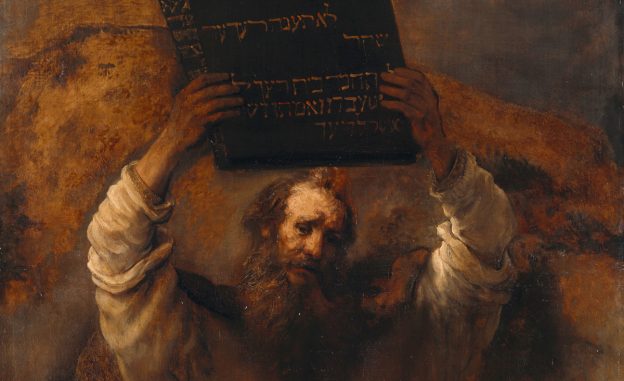From the ecstasy of the Exodus to the Agony of the Golden Calf episode, the relationship between God and Israel had been a rocky ride. Israel’s sin had spoiled the relationship between God and them, and Moses had interceded to spare them from destruction and then to seek a repair of the breach.
Now it was time for a relationship reset. After seeing God’s glory, Moses was able to renew the covenant relationship with God. In this second chance, God makes quite clear yet again the standard he requires. They are clearly told not to worship idols, and instead to structure their lives around the worship of God; including both in feasts and the Sabbath.
Moses’ reaction to the shadow of God’s glory was worship and prayer that God would both dwell with his people and forgive them of their sins (v.9). God was willing to do both, but what was needed was a renewal of the covenant relationship with the people in which this could happen (v.10).
But it was not because of anything about Israel, or Moses’ masterful prayers. God intended to do marvels, to bring glory to his name (v.10).
If God was going to do that amongst the people, then there were clearly some things they ought not to do. The Golden Calf incident revealed a dangerous weakness in Israel’s corporate life for idolatry, and the immorality that comes with it.
God was going to drive out the evil Canaanite nations as punishment for their sins (v.11). The Israelites were not to “make a covenant with the inhabitants of the land” which would lead them into strife (v.12). Like a spouse, God was jealous for an exclusive relationship.
Not only were they not to enter into polygamous covenant relationships with them, they were to destroy their worship sites (vv.13-14), because otherwise they would fall into the temptation of idolatry by worshiping the Canaanite gods (v.15) and the immorality that went with it (v.16). Eventually, they would make their own idols (v.17) and destroy their relationship with God.
Instead, they were to structure their lives around the worship of God.
The first way they could do this in their day was through observance of the religious feasts God instituted. God specifically commanded them to keep the Feast of Unleavened Bread, which reminded them of God’s loving rescue of them from Egypt (v.18).
This feast, together with the Feast of Weeks (or Firstfruits) and the Feast of Ingathering (or Tabernacles; vv.22-3), reinforced God’s love, provision, and protection (v.24) for them throughout the year and set up a kind of religious calendar.
Connected to this, God reminded them of their need of redemption from sin by requiring them to offer their firstborn animals (or in the case of a ritually unclean donkey, a lamb) to God as a sacrifice, and redeem firstborn sons as well (vv.19-20). This pointed back to their redemption at the Passover, and pointed forward to their redemption through Jesus.
Secondly, they could not only structure their years around worshiping God, but their weeks too. God again commands them to keep the Sabbath, even during plowing and harvest when the temptation of favourable weather and lots of work might have drawn them away (v.21). God demands wholehearted obedience, especially when deadlines intrude on worshiping him.
Thirdly, they should offer God their best. They were not to offer sacrifices with leaven (representing corruption), or the wrong sacrifice at a festival (v.25). They were to offer the best of what God gave them back, and not mix in disgusting Pagan fertility ceremonies (v.26). God wanted what was right, best, and (at least in human terms) pure.
With these commands, Moses was instructed to write them down, and to renew the covenant by once again making fresh copies of the Ten Commandments, summarising the whole of the covenant agreement (vv.27-8). The relationship was certainly reset, but the terms of the relationship had not changed.
None of the commands, either positive or negative, were specifically new as such in this passage. They were all reminders of what God had previously commanded, although repeated given the specific context of the sin of the Golden Calf.
Why did they need to be repeated? Because of Israel’s sin. Why does so much of the Bible seem to repeat the same messages of God’s holy requirements, our failings, and God’s gracious provision for us through Jesus? Because of our sin.
We need reminding, just as Israel did, because we are sinners and by our fallen human nature too quick to fall into sinful idolatry and immorality in our lives. I see it in my life. I’m sure it happens to you too.
Instead of sin, God wants a faithful, exclusive relationship. God wants our best. He wants us to pattern our whole lives around him, our years around worshiping him, our weeks around resting in him. And God wants it on his terms, not ours.
So as members of God’s covenant people today, let’s worship only him.


